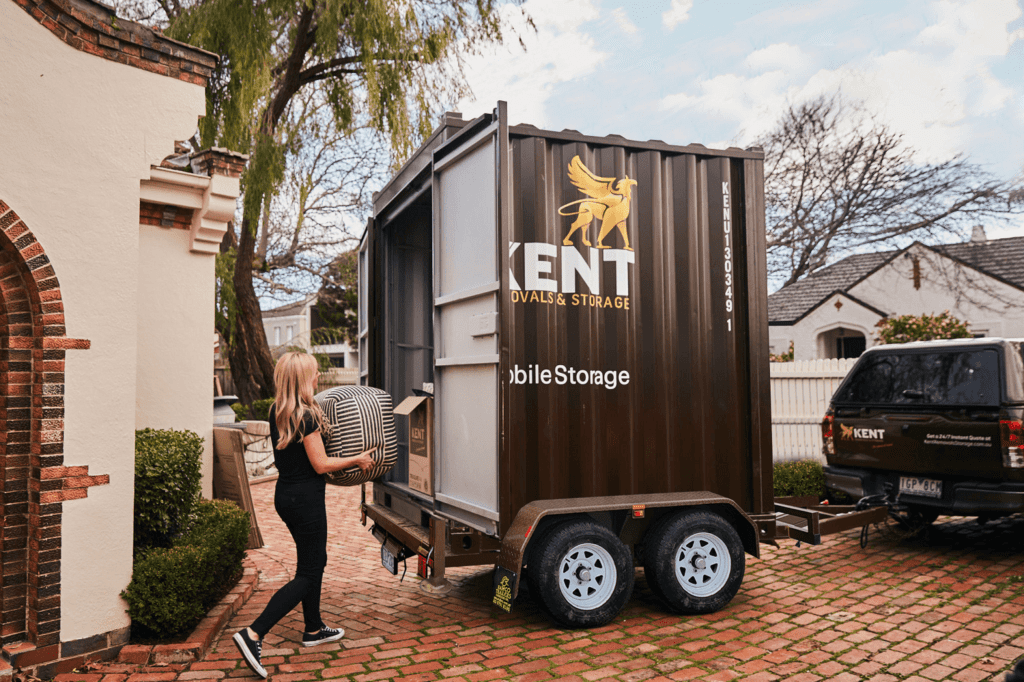
As the seasons change, so do our storage needs. Whether it’s stowing away holiday decorations, seasonal decor, winter clothing, sports equipment; such as storing ski gear, or gardening tools, properly storing seasonal items is essential to preserve their condition while maximising available space in your home.
In this article, we provide you with expert advice on the dos and don’ts of storing seasonal belongings, as well as share best practices when it comes to effective storage solutions. From sharing tips on proper packaging and labelling; to leveraging professional storage providers such as Kent Storage, we’ve got you covered. Read on.
Dos and Don’ts of Storing Seasonal Items
When researching storage solutions, it’s important to note that properly storing your seasonal items is crucial for their longevity and functionality. By following the dos and don’ts mentioned below, you can ensure that your belongings remain in top condition throughout the year:
1. Do: Clean and Prepare Before Storage
Before packing away your seasonal items, make sure to clean them thoroughly. Dust off holiday decorations, wash winter clothing, and clean sports equipment or gardening tools. This prevents dirt, stains, or pests from causing damage during storage.
2. Don’t: Use Damage or Insufficient Packing
Invest in high-quality storage containers, boxes, or bins that are sturdy and durable. Avoid using damaged or worn-out packaging, as they may not provide adequate protection. Additionally, use appropriate packing materials such as bubble wrap, packing peanuts, or tissue paper to safeguard fragile items.
3. Do: Label Everything Clearly
Label each storage box or container with its contents to easily locate specific items when needed. This saves you from rummaging through multiple boxes to find what you’re looking for. A simple labelling system can save you time and frustration in the future.
4. Don’t: Stack Boxes too High or Overload Containers
Avoid stacking boxes too high, as they may become unstable and prone to tipping over. Overloading containers can also lead to damage or breakage. Distribute the weight evenly and stack boxes or containers in a stable manner to prevent accidents.
5. Do: Consider Ambient Regulated or Climate-Controlled Storage
Certain seasonal items, such as delicate holiday decorations, electronics, or sensitive sports equipment, may require climate-controlled storage. Temperature and humidity fluctuations can cause damage, deterioration, or mold growth. Choose a professional storage provider that either offers climate-controlled storage or ambient regulated storage facilities to ensure that your belongings are protected from such unpredictable weather risks.
6. Don’t: Store Items in Basements or Attics Prone to Moisture
Avoid storing seasonal items in basements or attics that are prone to moisture or extreme temperatures. Storing in the attic or basement leaves your items exposed, as these areas can be breeding grounds for mold, mildew, or pests. Rather, store in dry, well-ventilated areas, or consider professional storage solutions from Kent Storage whom can seamlessly provide optimal storage conditions for your belongings.
7. Do: Use Vacuum-Seal Bags for Clothing
When it comes to long term clothes storage, maximise storage space and protect your clothing by using vacuum-sealed bags. Storing clothes in plastic bags like these will remove excess air, reduce the size of your overall clothing items, and prevent them from being exposed to moisture, dust, or pests. For further tips on packing clothes for storage, read our other helpful article, Best Ways to Store Clothes in a Storage Unit.
8. Don’t: Store Food or Perishable Items
Avoid storing any perishable items or food in the same storage area as your seasonal belongings. This can attract pests and lead to unpleasant odours or contamination. Keep your storage space dedicated solely to non-perishable items.
9. Do: Take Inventory and Create a Storage Plan
Before storing your seasonal items, take inventory of what you have and create a storage plan. This will help you determine the appropriate number of containers or units needed and ensure that everything is organised and easily accessible. Making a list of your storage inventory also means you know exactly where everything is, when you need it.
10. Don’t: Forget to Protect Against Pests
Pests can wreak havoc on stored items, especially in long-term storage. Take preventive measures by using pest-control products, such as mothballs or silica gel packs, to deter insects or rodents from damaging your belongings.
Conclusion
If the above dos and don’ts of storing seasonal items is a lot to remember, don’t stress! With Kent Storage’s professional storage solutions, you can entrust the safety and preservation of your seasonal items to experts who understand the importance of proper storage techniques and climate control. Trust Kent to provide secure storage for your seasonal items, giving you peace of mind and extra space in your home. Your seasonal items will be stored with care and ready for use when the next season arrives.
Storage Solutions with Kent Storage
When it comes to excellent storage solutions, Kent Storage is a name you can trust. With over 75 years of industry experience, Kent Storage offers a range of secure storage options tailored to your needs. Their state-of-the-art climate-controlled facilities across Australia ensure that your seasonal items are protected from temperature fluctuations and humidity damage.
Whether you require short-term or long-term storage solutions, Kent Storage offers mobile storage units and container storage units to suit your unique requirements. Their professional team can assist you with packing, transportation, and safe storage of your belongings.
Don’t let clutter overwhelm your space. Trust Kent Storage to provide you with the extra room you need. Get your Free Quote today by Call 1300 836 803 or Get in Touch.
